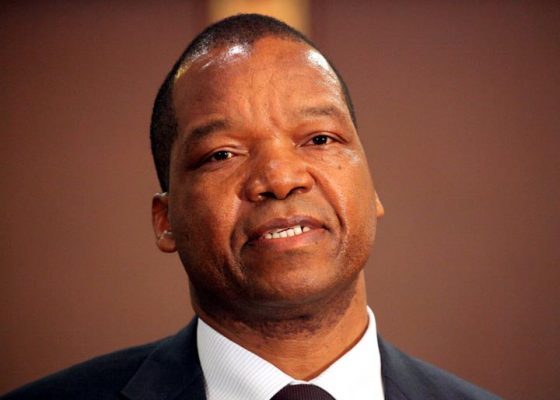THE Reserve Bank of Zimbabwe (RBZ) governor John Mangundya recently presented his Monetary Policy Statement (MPS) under the theme: Focusing on price and exchange rate stability.
The statement came at a time when the thrust of the central bank “is to stabilise the economy by bringing down inflation and stabilising it after the initial burst of high inflation that resulted from the liberalisation of the exchange rate and fiscal consolidation in 2019”.
It also came at a time when gold deliveries to Fidelity Printers and Refiners (FPR) declined by 17% to 27.66 tonnes for the period January to 31 December 2019, compared to the same period in 2018.
The national gold target for 2019 was 35 tonnes.
Gold deliveries from artisanal and small-scale miners declined by 19.4%.
This article seeks to review whether the policy managed to address the miners’ concerns as well as to ease the current financial woes emanating from the increasingly volatile financial market among other key issues.
Gold forex retention
The miners have been pushing for the government to increase gold forex retention to 80% or 100% so that they could have enough money to cover production costs, but the government has refused, saying importing cash has been a challenge.
Currently, both large scale gold producers and small scale producers are getting 55% retention threshold while all other minerals are pegged at 50%.
As highlighted earlier, the MPS noted that gold deliveries to FPR declined by 17% to 27,66 tonnes against a national target of 35 tonnes. The decline is attributable to electricity challenges coupled with inadequate equipment for small scale miners to access deep gold reefs and gold leakages through smuggling.
Zimbabwe Miners’ Federation (ZMF) spokesperson Dosman Mangisi said the MPS failed to address the issue of retention threshold.
“The RBZ recognizes the burden upon ASM in the gold sector, which has seen gold dropping by 17% on an annual basis. Formalisation continues to be the talk, as ZMF we feel more effort should be put on the ground. Mechanisation funds should reach out to every miner. Miners should be exempted to 100% since the sector has already dollarised itself,” he said.
Financial and economic analyst Persistence Gwanyanya also concurred that the policy failed to address the forex retention issue.
“If you look at the MPS, nothing changed. The position remained the same yet the miners wanted it to be changed,” he said.
Gold smuggling
Miners and economic analysts indicated that the MPS also failed to address the issue of smuggling in the gold sector. Due to failure to address the forex retention issue, Gwanyanya said some miners were smuggling gold outside the country to realise the full value of their commodity.
“Government should address issues of smuggling of gold. Miners are smuggling gold because they are being paid with a currency that is not stable. That’s what we are concerned about. That’s what concerns the miner,” he said.
Benard Conrad Magugu, an economic commentator said the massive drop in gold was no surprise especially with the outlawing of the US$ in payments for gold deliveries as most of the precious metal was smuggled through Zimbabwe’s porous borders which are currently manned by poorly remunerated officers who will turn a blind eye to the grand heist for a few greenbacks in their pockets.
“The current machete wars in the gold mining fields in Zimbabwe only make the trade murkier and darker and with the increased risk that artisanal miners are facing from rival politically connected MaShurugwi. With the drop in official deliveries, goes down the Zimbabwean economy into the abyss with no solution in sight from the country’s power-thirsty leadership,” Magagu said in some of his articles.
In its MPS analysis, the Zimbabwe Coalition on Debt and Development (Zimcodd) said whilst the bank reported that the decline of gold deliveries was attributable to electricity challenges coupled with inadequate equipment for small scale miners to access deep gold reefs and gold leakages through smuggling, violence in the sector in 2019 should not be ignored.
It said the government should upscale its efforts to address the disturbances in the sector driven by the machete gangs to maintain peace and security whilst safeguarding the sector as a key contributor to the fiscus and export earnings.
Economy and currency stability
Expectations had been high that the MPS would help arrest the deepening economic crisis characterized by price instability, meagre to non-existent disposable incomes and rapid depreciation of the Zimbabwean dollar. It, however, failed to stabilise the economy and currency as parallel market-driven macroeconomic distortions continue reigning supreme.
“It’s about the stability of the Zimbabwean dollar. We are concerned about the issue of the economy and currency stability. We talked about these issues in the last MPS but nothing was achieved. There is a need to stabilise the economy and currency because it’s very important. Without addressing these challenges it could be difficult for miners to achieve their goals,” Gwanyanya said.
Zimcodd said the economy is still suffering from the aftermaths of austerity measures and the liberalisation of the foreign exchange market which characterised the 2019 fiscal and monetary policies respectively.
“It is worrisome that the monetary policy is reactionary in nature rather than being proactive. Whilst the bank is supposed to set the pace for the financial services sector, it remains anchored on existing macroeconomic distortions associated with the exchange rate and price instability,” it said.
The organisation said whilst the bank celebrates the relative stability in the interbank exchange rate, it has little impact on the economy as a whole as the market only responds to the parallel market rates.
Despite being risky, the parallel market has proved to provide better offers to the transacting public in the face of cash shortages. People shun the interbank rates because transactions are not on a willing buyer – willing seller basis since citizens are not provided with the option of buying foreign currency.
The banks also do not have cash and all transactions are done electronically. This does not factor in the multiple pricing system in which cash in hand has more value than electronic money in Zimbabwe.
Economic commentator Reginald Shoko had hoped the monetary policy will have to put in place measures to address the volatile foreign exchange rates, inflation and stabilize the local currency “but all that was not effectively dealt with which left the pronouncement of monetary policy being more of a ritual rather a compass for economic development.”
“The governor has failed to have an impact or to influence the economic trends with tools on his disposal,” he said.
Formalisation of the small scale sector
Artisanal and small-scale mining has contributed significantly towards mineral output and a source of livelihood for many communities in Zimbabwe but the government is taking longer to formalise its activities.
Formalization is the process of bringing informal income-earning activities and economies like artisanal and small scale gold mining activities into the formal sector through legal, regulatory and policy frameworks.
This will help small scale miners contribute more to the fiscus.
Zimcodd said the formalisation of artisanal miners remains rhetoric considering that this among other progressive provisions of the proposed Mines and Mineral’s Bill are not taking effect with the Bill taking over five years to be passed into law.
Inflation
Hyperinflation has reared its ugly head again twice within a decade with no plausible solution in sight being proffered by the government and the central bank chief. The MPS talks of reducing the month-on-month inflation from the current 16,55% to less than 5% by the end of March but Magugu is not convinced.
Mangundya also anticipated annual inflation of 50% by December 2020, a figure described by analysts as imaginary.
“To go on and say that year on year inflation which is hovering at above 500% now will be reduced to 50% only leaves one to wonder whether the RBZ governor really stays in the same Zimbabwe as all of us or he is simply out of touch with reality to the point of being dismally incompetent, clueless and at best arrogant with an “I don’t care attitude,” Magugu said.
As a way forward, Zimcodd said RBZ should develop a clear medium to long term framework that drives the economy with clear policy coordination with the fiscal policy.
“Whilst the monetary policies are constitutional, the bank should have a policy that is forward-looking and redefine the bank’s thrust rather than being reacting to emerging issues,” it said.
This article first appeared in the March 2020 Issue of the Mining Zimbabwe magazine





